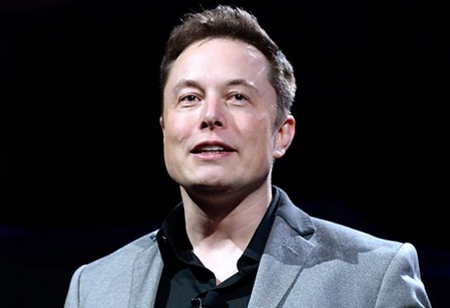
Elon Musk and Transformational Leadership


Elon Musk, the CEO of Tesla and SpaceX, is an unconventional leader and public persona. Some call Musk the 21st century’s Thomas Edison. His transformational leadership traits, intense work ethic, and straightforward communication have sparked discussions among investors, employees, and the general public. Musk's leadership traits are characterized by his visionary approach, relentless pursuit of innovation, and willingness to take big risks. He is known for setting ambitious, sometimes seemingly unattainable goals and driving his teams intensely to achieve them. Although sometimes controversial, this approach has led to extraordinary achievements, including the first privately funded launch of a spacecraft by SpaceX to the International Space Station. Let’s look into the great leadership lessons from Elon Musk.
Embrace Failure as a Stepping Stone to Success
One of the most important lessons we can learn from Musk is to accept failure as an integral part of the path to success. Musk recognizes that failure is an inevitable part of pushing the envelope and taking risks. By reframing failure as a learning opportunity, we can overcome setbacks and gain valuable insights that will lead to future achievements.
Social Architect
In many ways, Musk has inspired his employees. In every venture, from the development of the Tesla Model S electric car to the launch of the SpaceX Falcon rocket, Musk has successfully moved people to embrace a new collective identity and a new philosophy. For Musk, that philosophy is to maintain an unprecedented standard of excellence and to pave the way for unexpected progress in a largely abandoned industry.
Creative Deployment of Self
Transformational leaders have high positive self-esteem and focus on their strengths instead of dwelling on their weaknesses. Furthermore, they tend to immerse themselves in their work and the overarching goals of the organization. Mask is known for not being shy about his abilities and is outspoken about his ability to learn complex topics, including rocket science, by reading books. Moreover, to compensate for his weaknesses, he procures experts. In other words, he recruits the top experts in their fields and lets them do the heavy lifting while holding them to his standards of performance excellence. Finally, as a method of immersion, Musk rarely sleeps and is known for throwing himself into projects with his team. For example, when Tesla needed funding, he spent four weeks on site with his team to install an electric motor in a Smart car as a way to impress executives and secure funding.
The factor that most strongly distinguishes Musk and his vision from standard transformational leaders is their reliance on ethical standards, values, and moral beliefs. The strengths of transformational leadership are a strong emphasis on the needs, values, and morals of followers, trying to lead people to a higher standard of moral responsibility, and fundamentally morally uplifting. It is these qualities that distinguish transformational leaders from pseudo-transformational leaders, such as Adolf Hitler and Jim Jones, who rely on the coercive exercise of power to effect change. As the saying goes, hindsight is 20/20, and it will be only with the benefit of hindsight that we will understand if there are moral qualities in Mask's leadership that we can analyze. Given the magnitude and speed of the changes he is making in various industries, a strong argument could be made for either.
Elon Musk's Aggressive Attitude Toward Successful Innovation
Elon Musk is known for his proactive approach to successful innovation, which can be seen in the innovative products he and his respective teams have launched. Tesla aims to provide its customers with the most innovative products and to do so, he uses a transformational leadership style that emphasizes innovation and employee development.
The transformational leadership style helps to improve the company's performance and create a competitive environment against rivals by bringing innovation within the company. It motivates and provides value to employees, which increases their loyalty to the brand and their respective companies.
Building Teams That Dream Big
Underlying Mask's venture is the principle of dreaming big. It is the inspiring work environment he has created that has allowed Musk to attract and retain people who are not only highly skilled but who also share his ambitious vision. Teams are encouraged to set high goals and think outside the box, creating a dynamic and innovative atmosphere. This approach is based on the belief that by aiming for the seemingly impossible, teams can achieve breakthroughs that would be unattainable with a conservative vision. The culture of dreaming big implies not only an ultimate goal, but also the journey of exploration, learning, and growth that comes from tackling grand challenges.
Continuous improvement is a cornerstone of Mask's corporate culture. This mindset extends beyond product development and innovation to all aspects of the organization, including process optimization, team collaboration, and individual development. Employees are encouraged to seek feedback, learn from their mistakes, and iterate on ideas. This culture of continuous improvement allows companies to constantly evolve, adapt, and stay one step ahead in a competitive industry. It is a recognition that excellence is not a static achievement, but a perpetual process of getting better.

